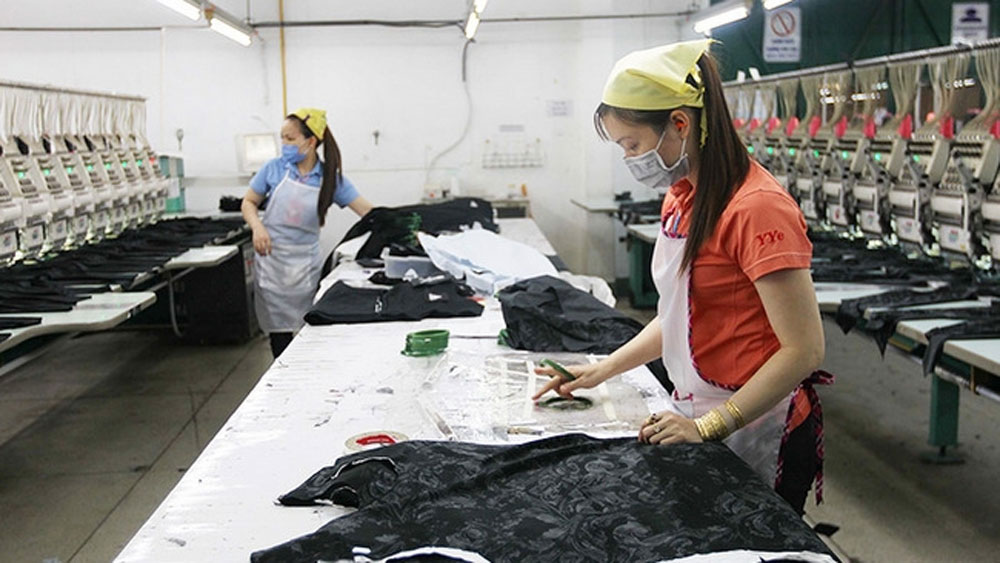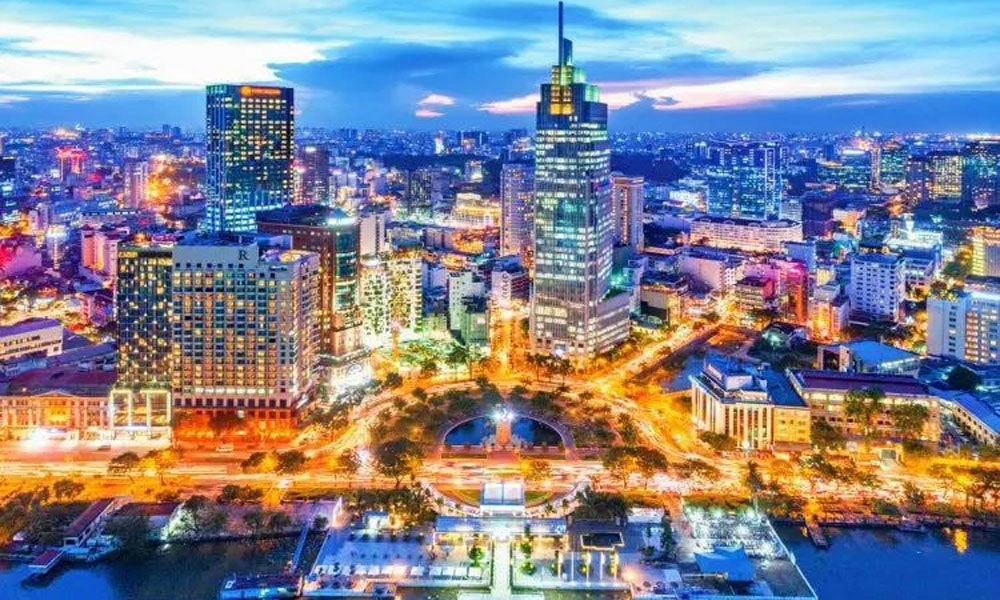Social welfare policies aim to retain employees
In the immediate future, the city’s authorities have directed relevant departments and agencies to review and provide planning information on a 15-hectare plot of land in Vinh Loc A Commune, Binh Chanh District, for investors to study and propose the investment for the construction of 300,000 social housings to serve workers for a year.
 |
|
Workers from Yung Yang Embroideries Limited Company in Tan Phu District, Ho Chi Minh City, maintained production during social distancing days. |
Ho Chi Minh City’s activities have been considered as breakthroughs for the housing construction programme for low-income workers and people for many years. Covid-19 pandemic swept through the city of more than 10 million people, thus the gaps in social security for low-income people have been clearly revealed.
Tran Hoang Ngan, Director of the Ho Chi Minh City Institute for Research and Development said that the most limiting problems of the locomotive of the national economy have been exposed, especially the overload of socio and medical infrastructure. The rapid and unexpected spread of the pandemic has been partly caused by the lack of housing for low-income workers and people.
In the housing development policy for 2016-2020 period, Ho Chi Minh City set a target of constructing 80,000 social housings. However, at the end of the period, only 20 projects, with about 15,000 houses, had been completed. This figure was too few compared to the people’s needs for social housing.
Not to mention, the policies on regulate the housing segments of the city have not been effective as the number of affordable apartments accounts for only 1% of the total housing products in the market today. As a result, the dream of settlement of in-come workers and employees who live far away from home has been increasingly abstract.
More importantly, in many meetings, the enterprises that have been investing in social housing segment by the form of sale or rent said cumbersome and overlapping administrative procedures are the biggest barriers that discourages them.
A business specialising in the construction of low-cost houses once shared about the obstacles in the investment into social housing projects. “It takes 4-5 years to complete the legal documents for a commercial housing project; however, this process for social housing is more arduous and difficult as can take up to 10 years.
The social housing projects for low-income people are limited in terms of profits; therefore, if the enterprises have to spend too much time on procedures, they will stop and convert the project's functions”.
The above analysis showed that in order to realise the plan for constructing one million houses for low-income workers and people, it is crucial to have the synchronous coordination between ministries, agencies and localities.
The policies, goals and solutions must really originate from the reality of income and employment of poor and low-income workers as well as should be associated with the creation of an open but tight legal corridor, with mechanisms and policies for businesses to prevent "loopholes" that cause distortions for these good policies.
The businesses have asserted many times that they should receive great support related to mechanisms and policies, not money. If the policies remove barriers, enterprises will no longer be discouraged when investing in social housing construction and the low-income workers will have the opportunity to choose many housing projects. As a result, their dream of settlement will be partly solved.
Source: NDO
 Bắc giang
Bắc giang















Reader's comments (0)